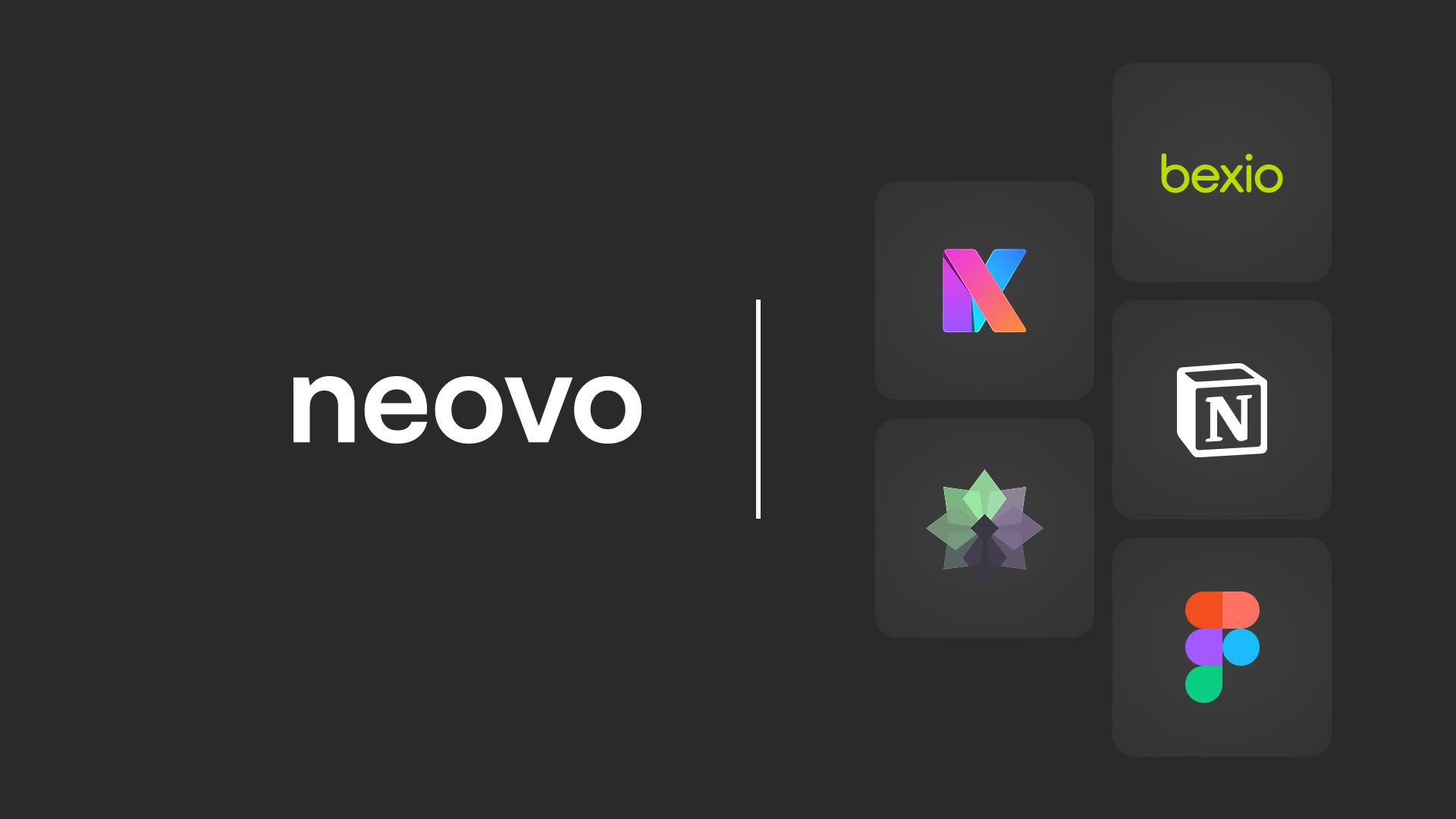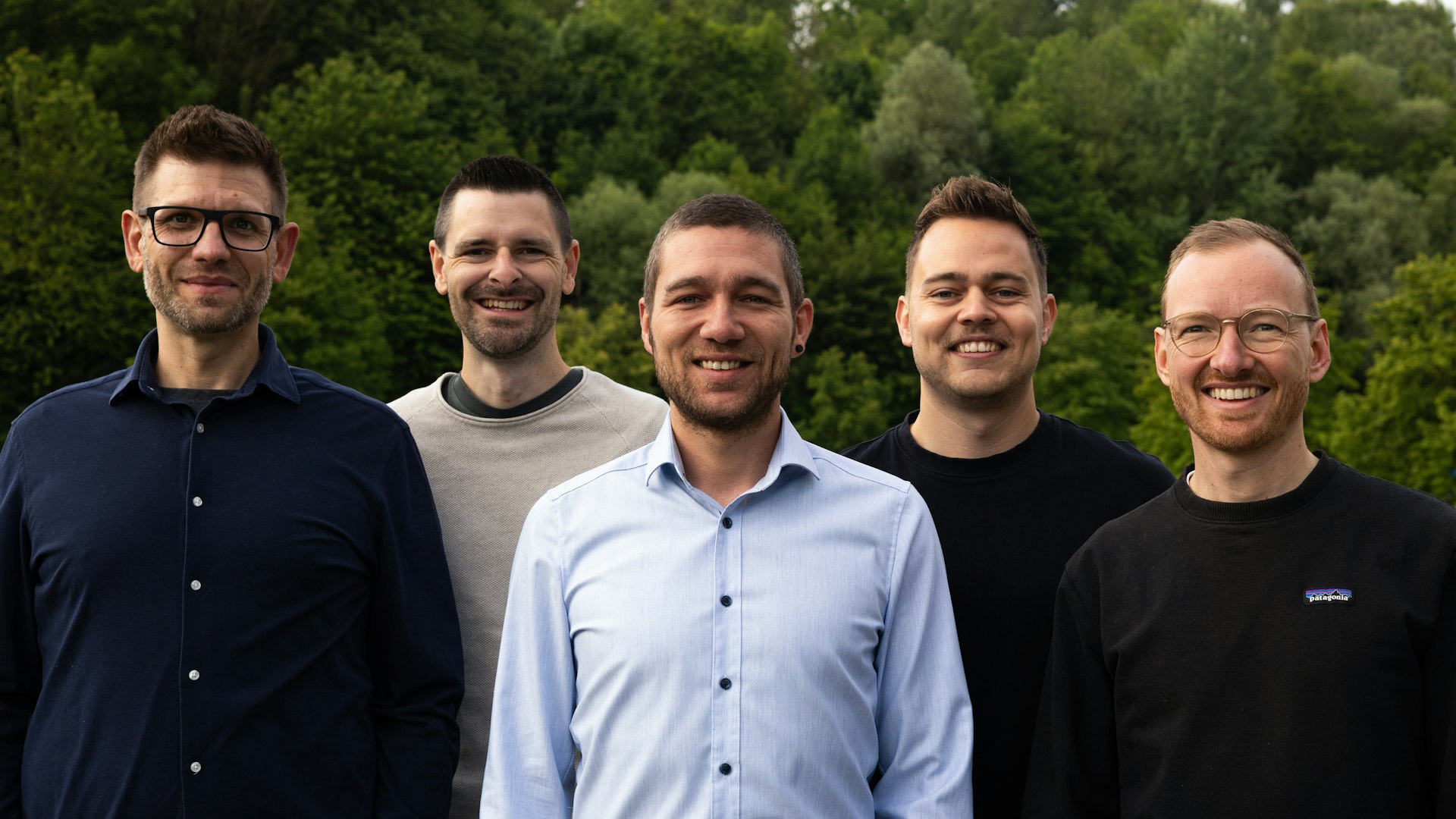Our Toolset and Why
We’re a young team that loves collaboration and clear processes. We care deeply about where our data lives. Whenever possible we choose solutions with data residency in Switzerland and use tools that let us work quickly and with focus. We use foreign tools selectively and, only when absolutely necessary, include public and highly generic customer data. That keeps our day-to-day work secure, efficient, and enjoyable.

Tools We Use
Project Management with Taiga
We manage projects together with our clients in Taiga. It gives us sprints, backlogs, Kanban boards, epics, and milestones while staying impressively lean. We also keep project wikis in Taiga. Workflows and roles are tailored via an open API, and we run Taiga on our own infrastructure. That means team speed and data sovereignty without detours.
Collaboration and Document Storage with Infomaniak kSuite
Our daily communication and collaboration run in Infomaniak kSuite. Email, calendar, drive, chat, and video meetings fit together seamlessly, and productive work data remains in Switzerland. Co-editing with versioning is reliable. Two-factor sign-in and fine-grained permissions give us and our clients peace of mind. It’s tidy and helps work move forward smoothly.
Internal Handbook with Notion
For knowledge, onboarding, and processes we use Notion internally. Pages, databases, and templates are quick to set up, knowledge stays findable, and comments or tasks make collaboration easy. Because Notion is a US-based service, we strictly follow our principle. No customer data is stored there. Notion is our internal handbook and home for repeatable workflows.
Visual Work with Figma
We use Figma for wireframes, design systems, clickable prototypes, and slide decks. Since Figma is a US service, we handle customer data with special care. While we can’t always rely solely on placeholders and abstract examples, we consciously minimize the use of any real data and limit it to what is absolutely necessary. This lets us keep a fast creative process while handling sensitive information responsibly.
Accounting and Payroll with Bexio
Our administration runs on Bexio. Quotes, invoices, bookkeeping, expenses, and VAT processes form a smooth end-to-end flow. Swiss standards like QR invoices and bank integrations are implemented cleanly. Automations take routine off our plate and reduce errors, freeing us to focus on the product.
Why Swiss data residency matters to us is simple. We benefit from clear legal frameworks and short paths for inquiries or audits. Access from foreign jurisdictions is reduced. Proximity to the infrastructure improves latency and availability. All of this lowers risk and increases the confidentiality of our work.
Our cost culture is clear as well. As a growing company, we avoid high fixed costs and unnecessary dependencies. Where it fits, we evaluate open solutions and run services ourselves. We only adopt specialized SaaS when the benefit is clearly tangible—then with clear rules and without customer data.
Alternatives
There are many European alternatives, both self-hosted and hosted. Each comes with its own strengths and weaknesses, often with noticeable license and operating costs as well as extra administration and training. The perfect solution is rare, and a diligent evaluation takes time and proper testing. After careful consideration we chose the tools above and are very happy with them. For your own research, the overview at european-alternatives.eu is a great starting point.
Closing
Our tool choices reflect our values: efficiency, data sovereignty, and pragmatic solutions. The combination of Swiss data residency, lean processes, and targeted use of specialized tools has proven itself in our daily work.
Of course, our setup won’t be right for every team. What matters is making conscious decisions that balance your needs with your responsibility toward customer data.
Digitalization offers countless possibilities. The key is choosing what truly fits your goals and values. For us, less is often more—and the best tools are the ones that just work and stay out of the way.
Have questions about our tools or similar challenges in your organization? We’d love to talk.



